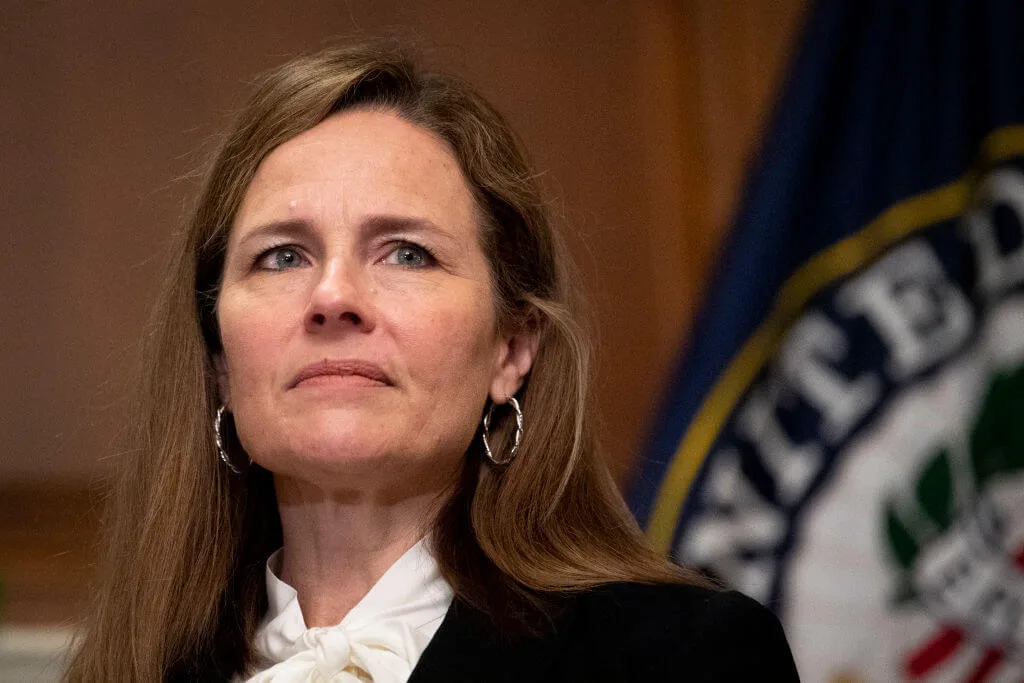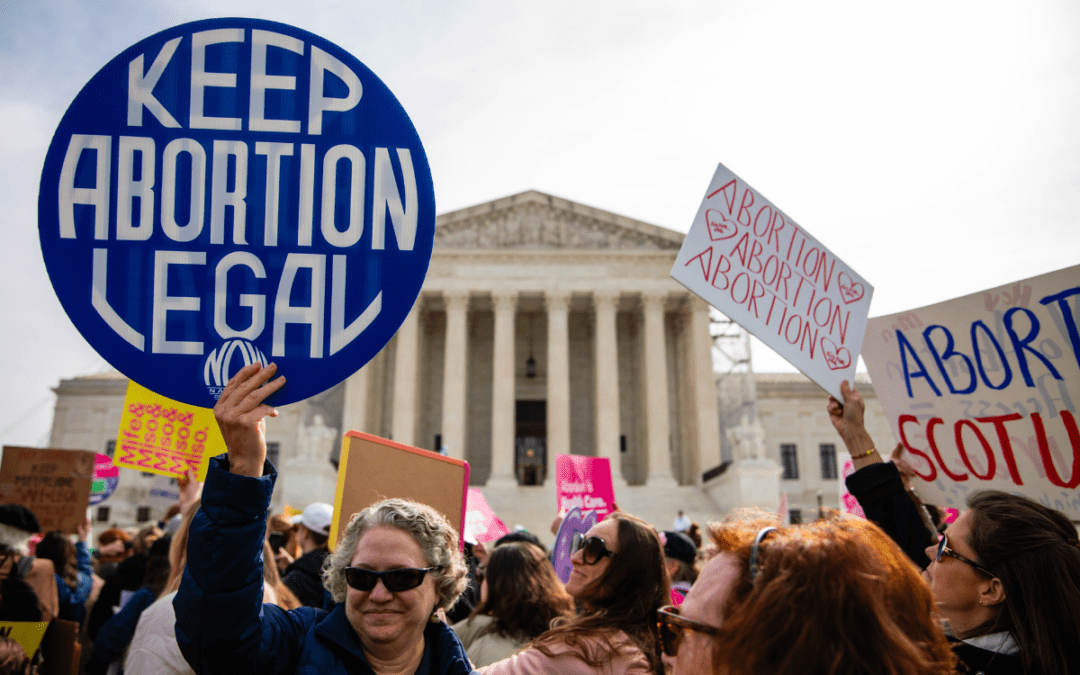
Amy Coney Barrett, President Trump's nominee to replace Justice Ruth Bader Ginsburg on the Supreme Court, holds views that don't align with a majority of American Catholics (Getty/Pool).
Recent polling and reports show that American Catholics’ views on Roe v. Wade and contraception are different than the doctrines of the Vatican and Supreme Court nominee Amy Coney Barrett’s positions.
These days, I regularly kneel in silent prayer for gender equality at an Episcopal Church I have started to attend. For me, it’s complicated to think about going back to the Catholic Church where I was confirmed. But, I know that if I return I will not be alone.
The open, non-secret in Catholic quarters is that wide swaths of parishioners are not in line with the all-male Catholic hierarchy’s harmful approach to reproductive health. This is the same approach espoused by Amy Coney Barrett, who has said that abortion is “always immoral.” She has also twice ruled in favor of restricting access to abortion when presented the opportunity to do so in her three years of service as an appellate judge.
Amy Coney Barrett is a conservative Catholic with punitive views on abortion and sexuality. Those views are not representative of Catholics as a whole, nor do dismayed reactions to her nomination to the highest court represent anti-Catholic discrimination. Hardly.
Coney Barrett’s record, coupled with eager cheerleading for her by anti-abortion leaders openly anticipating new first trimester—or total—abortion bans in certain states, appears to fit Trump’s pledge during the 2016 campaign that he would appoint only Supreme Court justices who would vote to “automatically” overturn Roe v. Wade.
RELATED: Here Are Three Ways to Channel Your Grief Over RBG’s Death Into Action
Catholics as a whole do not feel the same way about that landmark 1973 decision, which affirmed the constitutional right for women to make their own family planning decisions and expanded the possibilities available to women in society. In Gallup’s 2020 Values and Beliefs poll, 22% of Catholics said they wanted abortion to be legal in any circumstance and 53% wanted it legal only under certain circumstances, closely mirroring the American public overall. In fact, just 22% of Catholics took the Trumpian view of wanting abortion to be illegal in all circumstances.
Similarly, in spite of official teachings from the Vatican labeling contraception like condoms and the Pill as “intrinsically evil,” Catholic people don’t agree. Catholics for Choice, which opposes the nomination of Amy Coney Barrett, affirmed the normality of contraception for Catholics in a 2014 report. It concluded that, “Sexually active Catholic women older than 18 are just as likely (99%) to have used some form of contraception banned by the Vatican as women in the general population (99%).”
No wonder, then, that there is a growing movement among students on Catholic college and university campuses. These groups are advocating for evidence-based reproductive health care right on their own quads, an effort that long predates the good old days of my matriculation at Georgetown, a Jesuit Catholic university. This movement seeks to build power with like-minded student groups affiliated with other Catholic universities through an emerging federation called Student Coalition for Reproductive Justice.
And just which student group is one of its founding organizations? Irish 4 Reproductive Health, at the University of Notre Dame, where Coney Barrett famously served as a law professor.
During her time at Notre Dame, she wrote in the Texas Law Review: “If anything, the public response to controversial cases like Roe (v. Wade) reflects the public rejection of the proposition that (precedent) can declare a permanent victor in a divisive constitutional struggle rather than desire that precedent remain forever unchanging.”
RELATED: Jane Roe of Roe v. Wade: I Was Paid to Turn Against a Woman’s Right to Choose
With statements like that, the potential of Coney Barrett becoming the sixth of nine justices opposed to abortion rights reflects the legitimate concern of Americans that an unelected, activist court could take away their reproductive rights and freedoms.
Those very freedoms are interconnected with the right to full participation in all aspects of society for more than half of the population. The consequences of pregnancy and childrearing shape all aspects of our lives, emotionally, financially, physically, and—for so many Americans—spiritually. This respect for the ideals of self-determination and religious freedom for people themselves is why Americans do not want to overturn Roe v. Wade.
With elections already underway, it’s similarly unsurprising that a majority of Americans do not want to rush Coney Barrett to the Supreme Court. They prefer instead to wait until after the election to fill the late Justice Ruth Bader Ginsburg’s seat.
Opposition to Coney Barrett is not inherently anti-Catholic—just as it’s not inherently anti-Catholic to oppose the current president and Senate stealing the chance to make a Supreme Court nomination on a normal timetable from the candidate elected president in less than five weeks. And keep in mind that one of those candidates is actually Catholic. Perhaps the loud allegations of anti-Catholicism are being made in bad faith for the purpose of inflaming ordinary Catholic Joes.
Politics

How Project 2025 aims to ban abortion in Pennsylvania
Former president Donald Trump said abortion was a state’s rights issue recently, but conservative organizations, under the banner “Project 2025,”...

736,000 PA households could lose crucial help on their internet bills
Time is running out for the Affordable Connectivity Program, which provides low-cost high speed internet access for over 736,000 Pennsylvania...

What to know about Trump’s legal issues
Over the past year, former president Donald Trump has become the center of not one, not two, not three, but four criminal investigations, at both...
Local News

Conjoined twins from Berks County die at age 62
Conjoined twins Lori and George Schappell, who pursued separate careers, interests and relationships during lives that defied medical expectations,...

Railroad agrees to $600 million settlement for fiery Ohio derailment, residents fear it’s not enough
Norfolk Southern has agreed to pay $600 million in a class-action lawsuit settlement for a fiery train derailment in February 2023 in eastern Ohio,...





